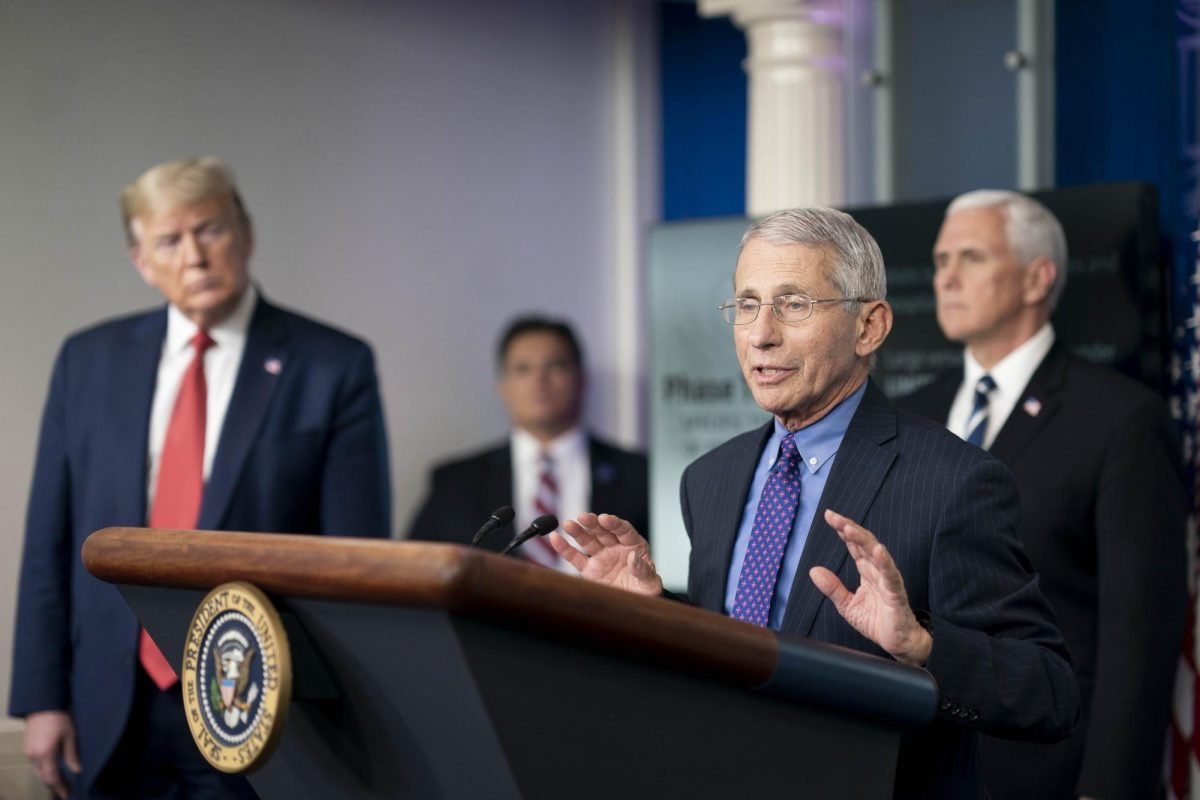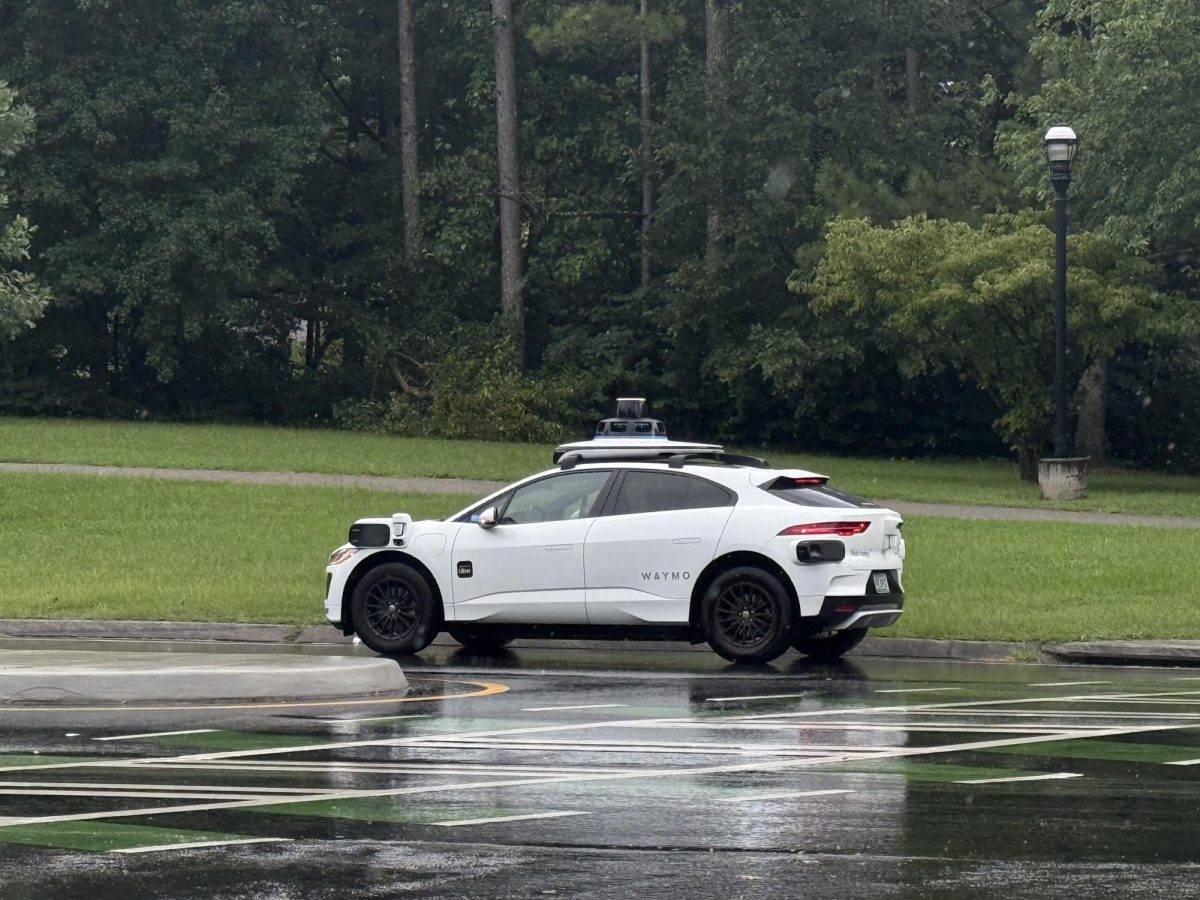On Jan. 20, former President Joe Biden preemptively pardoned numerous potential targets of the incoming Trump administration. Among critics of President Donald Trump, the Jan. 6 Committee and Biden’s family members, one such pardon went to Biden’s former Chief Medical Advisor, Dr. Anthony Fauci.
Throughout much of the Covid pandemic, Dr. Fauci served as a pivotal figure on Capitol Hill. During the Trump presidency, he was a lead member of the White House Coronavirus Task Force. By way of frequent press conferences and TV appearances, he established himself as a prominent source of information during the pandemic. Advocating for strict Covid regulations, Dr. Fauci faced repeated backlash from Republican lawmakers, who fiercely opposed such restrictions. Despite this, he maintained his official presence until 2022, when he stepped down.
While a pardon might appear to imply guilt, in reality it’s less about Dr. Fauci and more about Trump. Dr. Fauci included, Biden’s pardons are aimed at preventive political persecution, not pardoning wrongdoing. And such a worry isn’t without precedent. When Trump faced Democratic candidate Hillary Clinton in 2016, he repeatedly threatened to “lock her up” if he were to be elected.
Claims of Dr. Fauci’s wrongdoings center around accusations that he both lied to Congress and covered up the origins of Covid. Both of these claims stem from a statement Dr. Fauci made during a 2021 Senate hearing, when he told the Senate that the National Institutes of Health (NIH), an agency he was formerly a part of, had never funded any gain-of-function research at the Wuhan Institute of Virology (WIV).
The legitimacy behind these claims is complicated. While senators such as Ted Cruz (R-Tex) claim that Dr. Fauci’s statement was directly refuted in an NIH letter published later that year; no such contradiction appears in the letter.
In Dr. Fauci’s case, ‘gain of function’ refers to experimentation with Covid transmission in humans and similar potentially dangerous functions. However, gain of function is not a very specific term. It’s essentially basic biological research, and can refer to any number of different experiments. However, the line where gain-of-function research becomes dangerous is blurry, and there’s no way of knowing what exactly was being done at the Wuhan Institute of Virology.
Biden’s decision to pardon Dr. Fauci should and must be viewed as a protective measure, rather than a condemnation of his work during the pandemic. Throughout the pandemic, Dr. Fauci’s steadfast poise in the face of relentless attacks was nothing short of courageous. A protective pardon being viewed as a refute of these actions wouldn’t just be a disservice to Dr. Fauci, it would be a disservice to American history.
Dr. Fauci’s career is characterized by an outstanding commitment to public health. After completing medical residency in 1968, he joined the NIH as a clinical associate in the National Institute of Allergy and Infectious Diseases (NIAID). In 1980, he became the chief of NIAID’s Laboratory of Immunoregulation. Four years later, he became the director of NIAID.
Much of Dr. Fauci’s career was dedicated to fighting HIV/AIDS. In the early 1980s, during the height of the AIDS epidemic, he was one of the disease’s leading researchers. Despite facing backlash at the time, leading AIDS activist Larry Kramer later called Dr. Fauci “the only true and great hero” among government officials during the crisis.
Through direct opposition from the White House and relentless attacks from Republican media, Dr. Fauci continued to advocate for the most up-to-date Covid precautious during his tenure on the White House Coronavirus Task Force. In 2020, Trump threatened to fire him were he to win the election. At another rally that same year, Trump’s speech was met by chants of “Fire Fauci.” He was never fired.
Dr. Fauci’s legacy is one of upstanding defiance. Faced with protest and fierce backlash during the AIDS epidemic, he was steadfast in his commitment to lifesaving research. When he left the lab for Capitol Hill during the Covid pandemic, he again refused to yield against a wave of partisan attack.
Dr. Fauci’s career, as both a scientist and an advisor, epitomizes what it means to serve one’s country. At great risk to his career and reputation, he has repeatedly chosen to stand up for what’s right. This is why a pardon for Dr. Fauci isn’t incriminating, but crucial. By taking such a step, Biden extends exemplary protections to an exemplary American.















Jd kopff • Feb 16, 2025 at 11:38 am
This doctor saved thousands of lives, he needs to be commended for it!